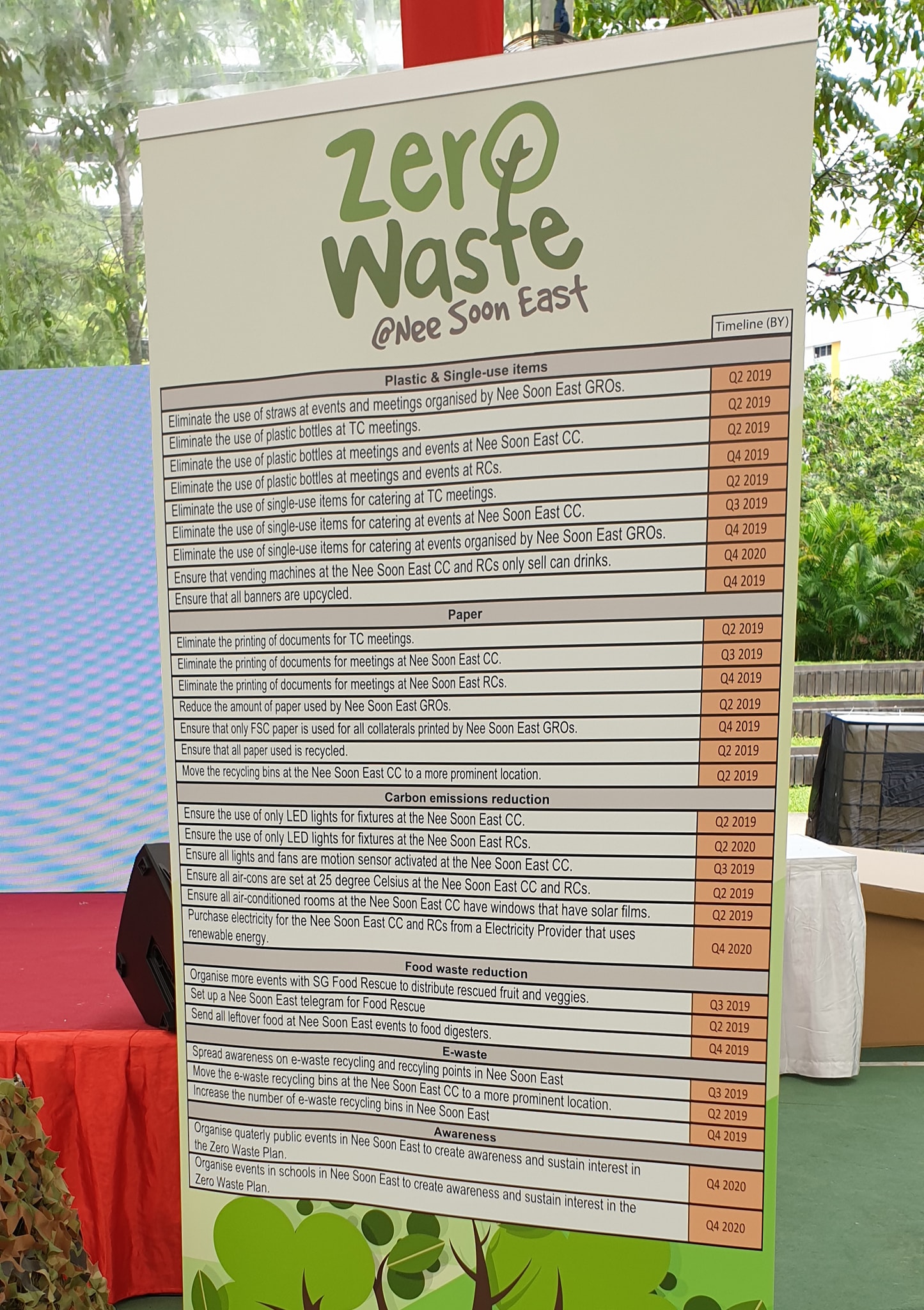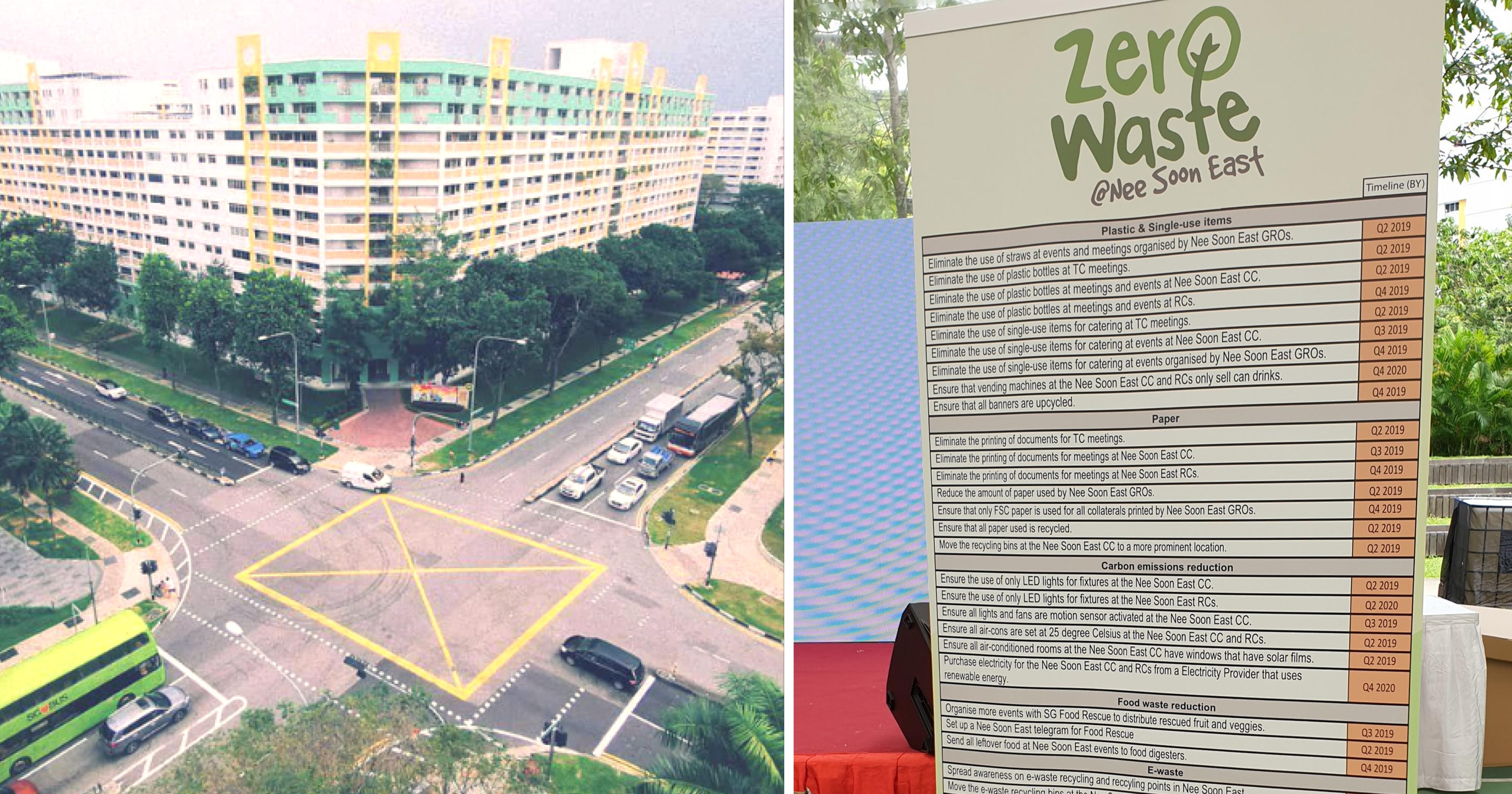Some are taking 2019 as the Year Towards Zero Waste seriously, and Nee Soon East is one of them.
A first in Singapore
On April 27 , 2019, the zero waste masterplan was announced by Nee Soon GRC MP Louis Ng.
The two-year masterplan intends to target several pertinent areas such as plastics and other single-use items, food waste, e-waste, paper and carbon emissions, according to The Straits Times.
The masterplan includes a lengthy list of targets under each of the focus areas mentioned above, and dictates a timeline by which each target should be met.
For example, to reduce plastics, the use of straws and plastic bottles at town council and Nee Soon Community Club (CC) meetings and events will be eliminated by the second quarter of 2019.
Other interesting measures include:
- Upcycling banners hung up in the district instead of discarding them.
- Ensuring all vending machines in the district sell can drinks instead of bottled ones.
- Purchasing electricity only from green electricity retailers.
- Sending leftover food waste from district events to food digesters that can compost the waste.
- Setting up a Nee Soon East Telegram group chat where residents can inform each other of leftover food that can be shared.
You can see the full list of targets below:
 Photo from Our Earth Our Future - Nee Soon East, Facebook
Photo from Our Earth Our Future - Nee Soon East, Facebook
Nee Soon East's zero waste masterplan is a first for Singapore — no other district has set concrete timelines to embark on such an ambitious project to drastically cut down on waste.
Recycling right
The Ministry of Environment and Water Resources (MEWR) designated 2019 as Singapore's Year Towards Zero Waste in January.
One of the campaigns held to honour this Year is a movement to educate Singaporeans on #RecyclingRight.
Two surveys conducted by MEWR and the National Environment Agency (NEA) in June 2018 and February 2019 found that 60 per cent of Singaporean households recycle regularly, but many were not recycling the right items, reported CNA.
Some of the the items most commonly recycled are clothes, shoes and bags, but these items could actually be donated instead if still in good condition.
This confusion over what can and cannot be recycled has caused problems, and reduced the country's rate of recycling.
A previous video in 2018 by Eco-Business shed light on the behind-the-scenes of waste collection facilities, and revealed that 40 per cent of items thrown in the recycling blue bins could not be recycled due to contamination.
With Nee Soon East stepping up its sustainability efforts with the new masterplan, perhaps more Singaporeans would now be more conscious of recycling items properly and efficiently.
If you as an individual are unsure of what can and cannot be recycled, here's a helpful link.
Top photo from Our Earth Our Future - Nee Soon East
If you like what you read, follow us on Facebook, Instagram, Twitter and Telegram to get the latest updates.
